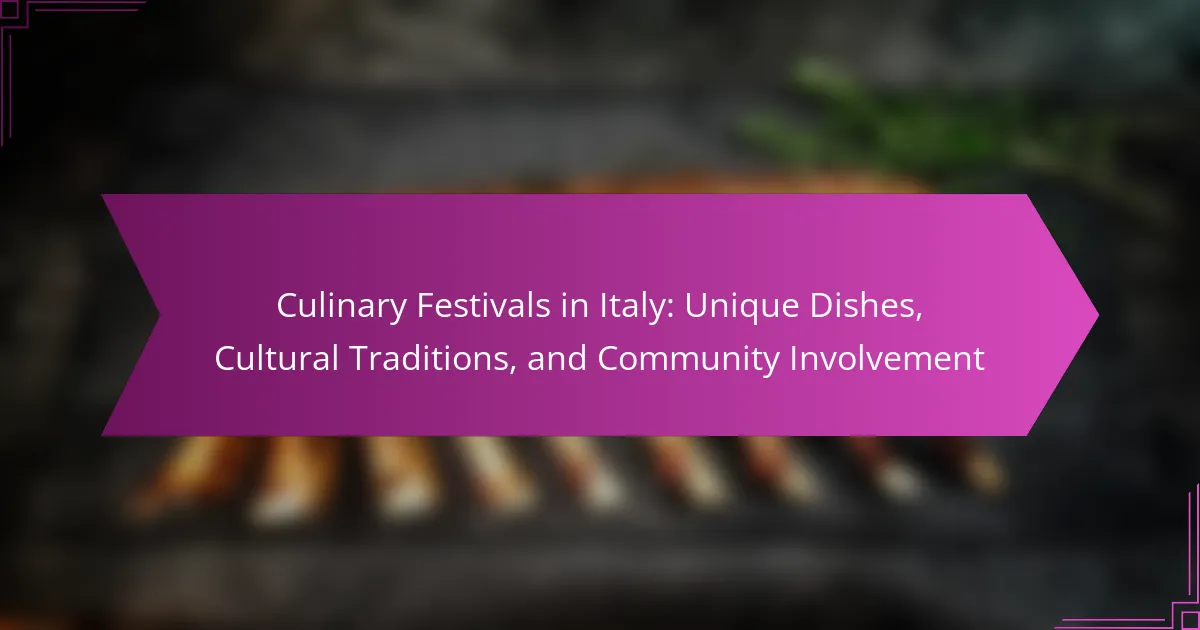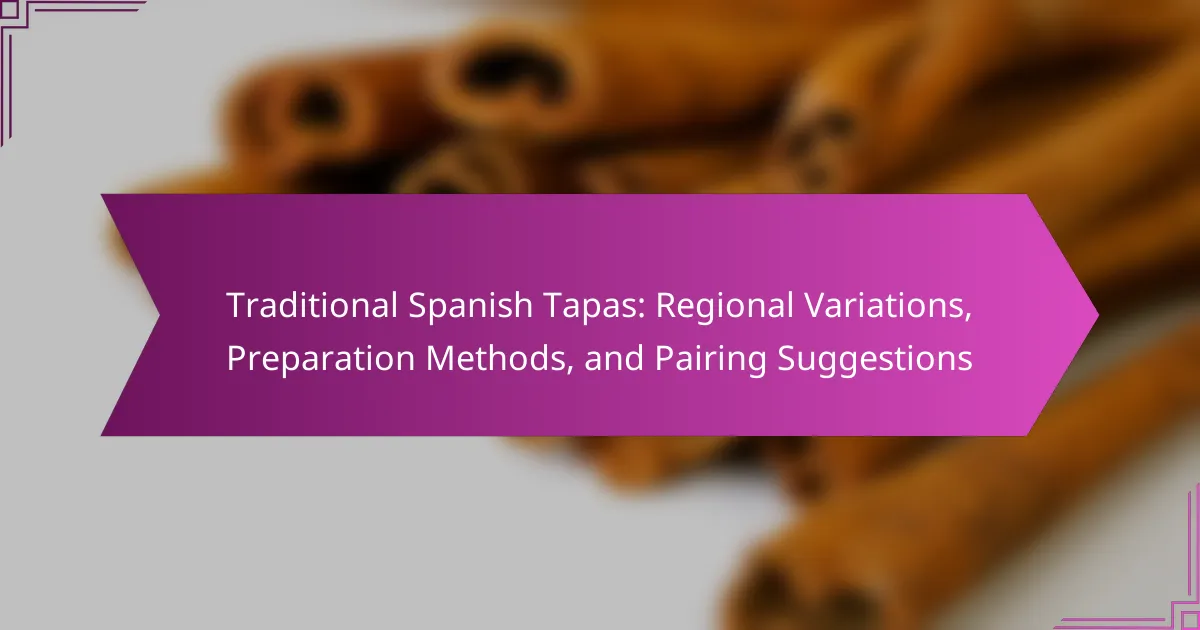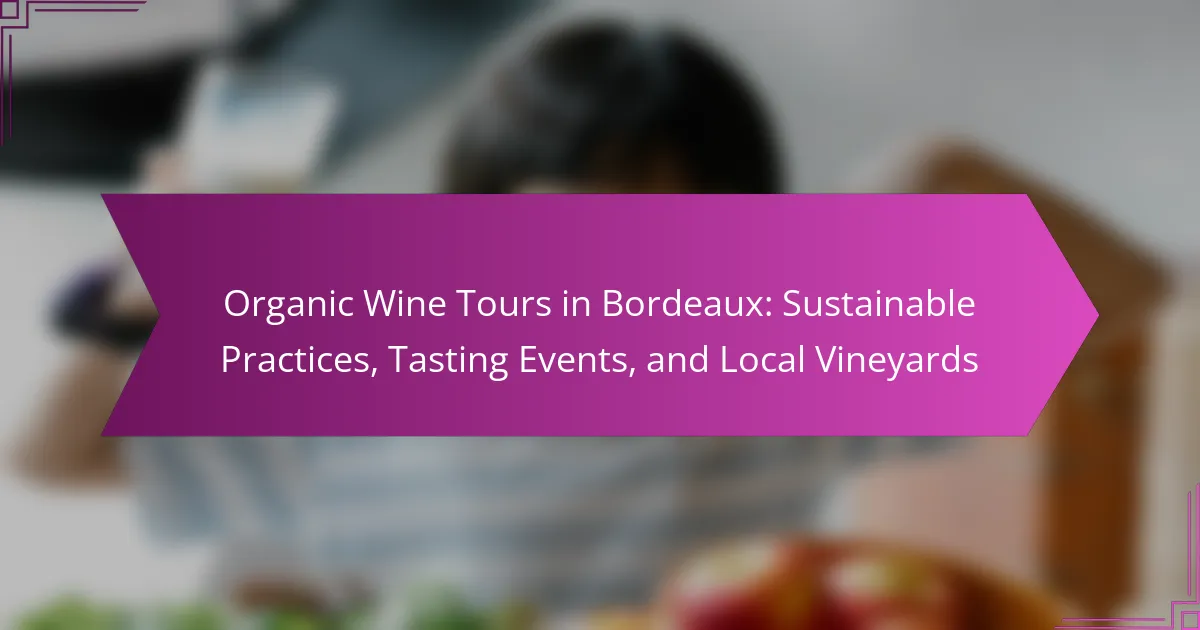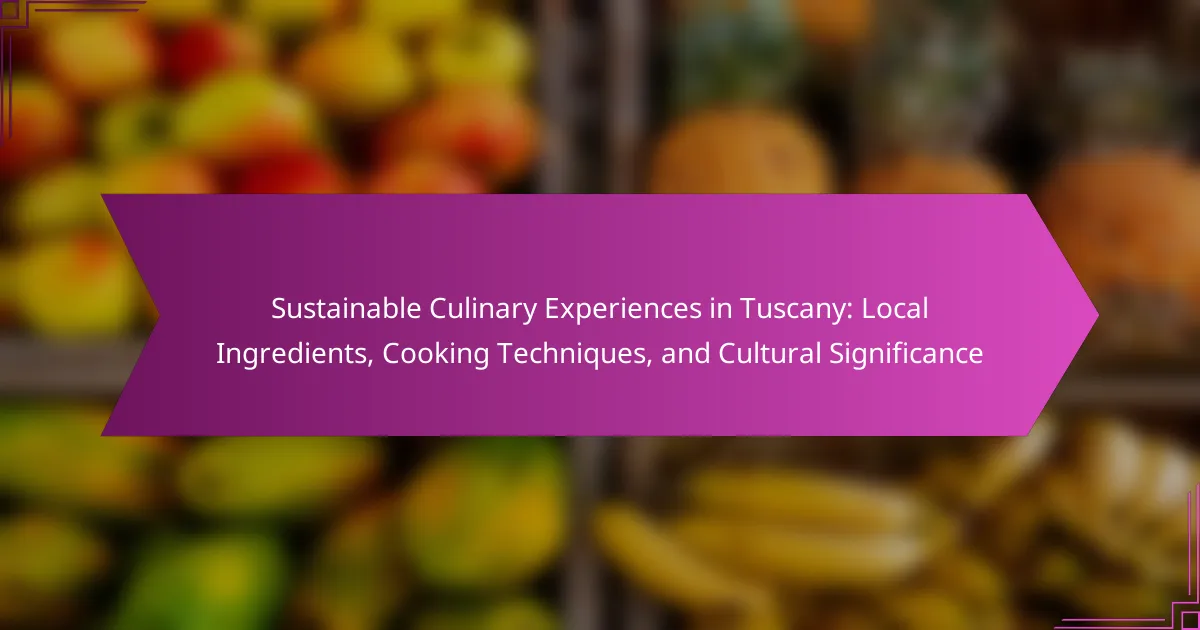Eco-friendly cooking classes in Barcelona offer a unique opportunity to learn sustainable cooking skills while minimising environmental impact. Participants engage with local chefs who emphasise seasonal produce and eco-friendly practices. Classes focus on hands-on experiences, teaching techniques for waste reduction and plant-based cooking. By using sustainable ingredients, these classes foster a deeper connection to food and the environment.
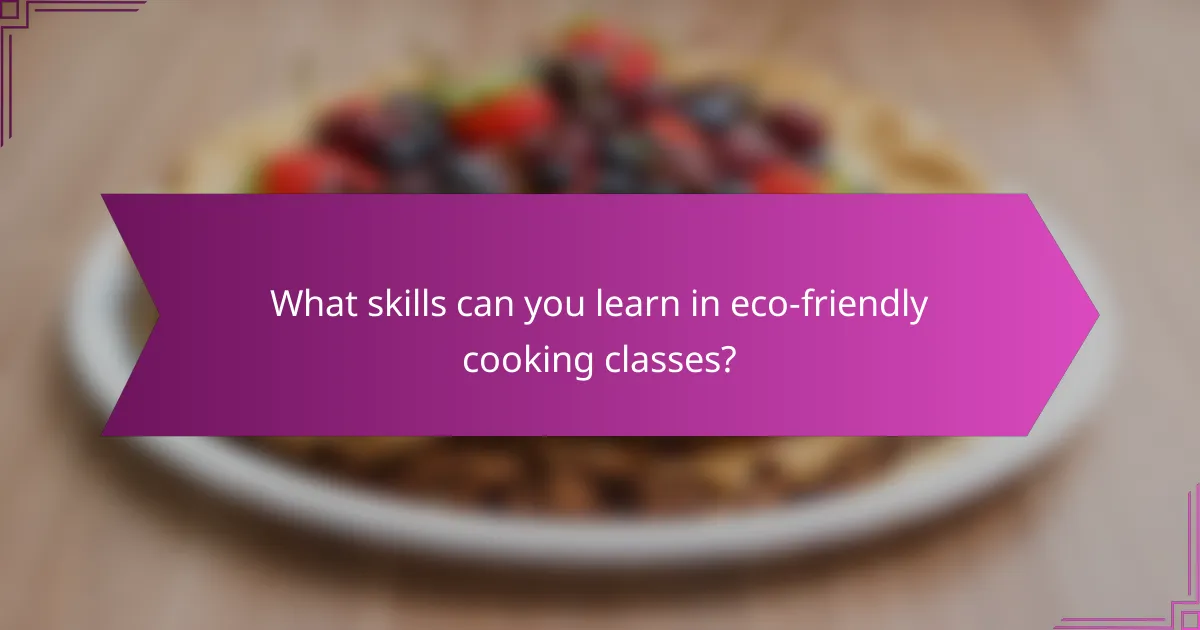
What skills can you learn in eco-friendly cooking classes?
Eco-friendly cooking classes in Barcelona teach skills like sustainable ingredient selection, waste reduction techniques, and plant-based cooking methods. Participants learn to create nutritious meals while minimising environmental impact. Local chefs share expertise on seasonal produce and eco-friendly practices, enhancing culinary creativity and sustainability awareness.
How do these skills promote sustainability?
Eco-friendly cooking classes in Barcelona promote sustainability by teaching skills that reduce waste and enhance local sourcing. Participants learn to use seasonal ingredients, minimising carbon footprints associated with transportation. Additionally, these classes emphasise techniques that conserve resources, such as energy-efficient cooking methods. By fostering a connection to local chefs and producers, students gain insights into sustainable practices that support the community and the environment.
Which cooking techniques are emphasized in eco-friendly classes?
Eco-friendly cooking classes in Barcelona emphasise techniques like steaming, sautéing, and fermenting. These methods minimise energy use and enhance the flavours of local, sustainable ingredients. Classes often incorporate seasonal produce, promoting a farm-to-table approach that supports local chefs and reduces environmental impact. Additionally, participants learn to utilise leftovers creatively, minimising waste.
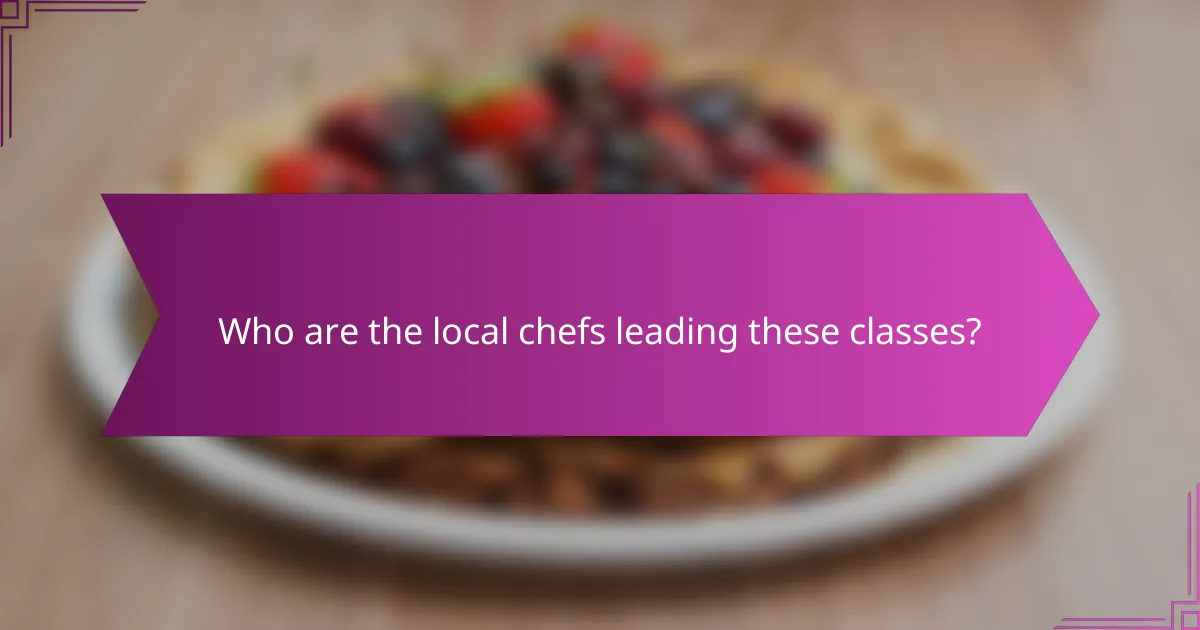
Who are the local chefs leading these classes?
Local chefs leading eco-friendly cooking classes in Barcelona include notable figures such as Ada Parellada, known for her sustainable approach to Catalan cuisine, and Patricia Ramos, who emphasises organic ingredients. These chefs incorporate local produce, teaching students the importance of sustainability in cooking. Their classes focus on hands-on experiences, fostering a connection between participants and the environment.
What backgrounds and expertise do these chefs bring?
Local chefs in Barcelona bring diverse backgrounds, including culinary arts, nutrition, and sustainability. Many have trained in prestigious institutions and possess experience in organic farming. Their expertise enhances the eco-friendly cooking classes by emphasising local, seasonal ingredients. Chefs often incorporate traditional Catalan recipes, making classes culturally enriching.
How do local chefs influence the culinary experience?
Local chefs significantly enhance the culinary experience by incorporating regional flavours and sustainable practices. They emphasise the use of local ingredients, which fosters a connection between the dish and its origin. This approach not only supports local farmers but also promotes eco-friendly cooking methods.
Through hands-on cooking classes, these chefs share their expertise, teaching participants about traditional recipes and innovative techniques. They often highlight the importance of seasonality in ingredient selection, ensuring that meals are fresh and flavourful.
Additionally, local chefs contribute to a vibrant food culture by collaborating with other culinary professionals, participating in community events, and showcasing their dishes in local markets. This collaboration enriches the culinary landscape and encourages a greater appreciation for sustainable cooking.
The unique attributes of local chefs, such as their knowledge of regional cuisine and commitment to sustainability, create memorable culinary experiences that resonate with participants.
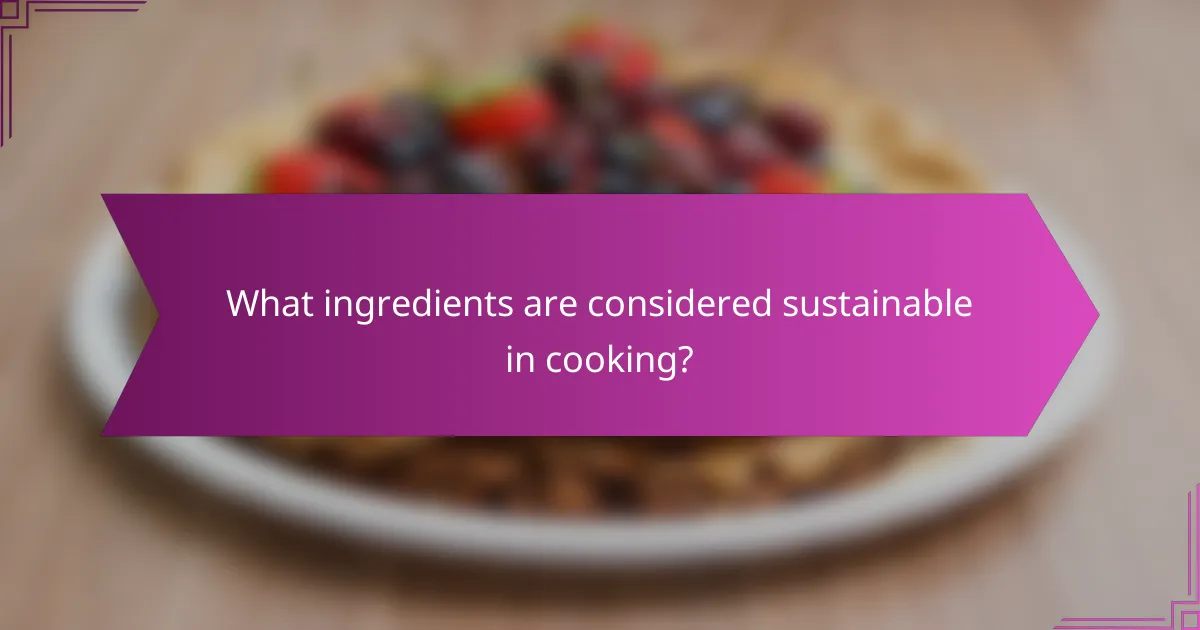
What ingredients are considered sustainable in cooking?
Sustainable ingredients in cooking include locally sourced produce, organic grains, and plant-based proteins. These ingredients reduce environmental impact and support local economies. Seasonal fruits and vegetables also enhance flavours while minimising carbon footprint. Additionally, choosing seafood certified by sustainable practices ensures responsible sourcing.
How do local markets contribute to sustainable ingredient sourcing?
Local markets significantly enhance sustainable ingredient sourcing by connecting chefs with local producers. This relationship reduces transportation emissions and supports the local economy. For instance, eco-friendly cooking classes in Barcelona often highlight seasonal produce from nearby farms, ensuring freshness and minimal environmental impact. Additionally, local markets promote biodiversity by encouraging the use of traditional and indigenous ingredients, which can lead to unique culinary experiences. This commitment to sustainability fosters a culture of responsible consumption among both chefs and participants.
Which seasonal ingredients are highlighted in classes?
Eco-friendly cooking classes in Barcelona highlight seasonal ingredients such as tomatoes, zucchini, and bell peppers during summer. In autumn, classes feature pumpkins, mushrooms, and root vegetables. Winter brings ingredients like kale, citrus fruits, and hearty grains. Spring showcases fresh herbs, asparagus, and peas, emphasising local and sustainable sourcing throughout the year.
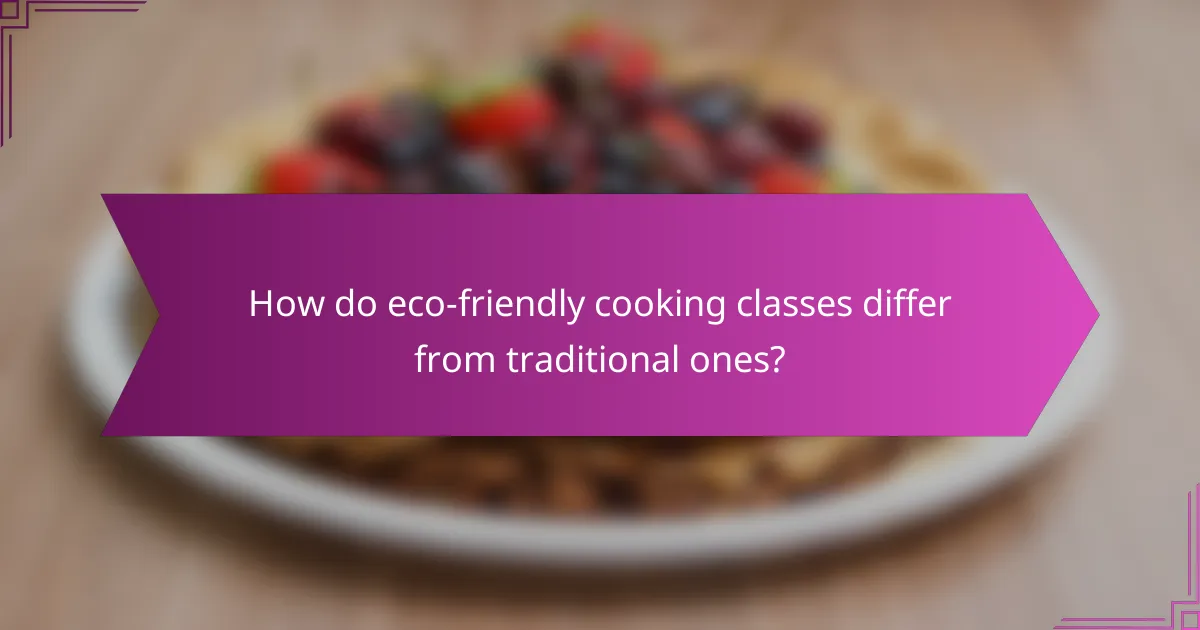
How do eco-friendly cooking classes differ from traditional ones?
Eco-friendly cooking classes focus on sustainability, using local ingredients and environmentally conscious techniques, unlike traditional classes that may prioritise convenience and cost. Participants learn about the impact of their food choices and gain skills in preparing meals that minimise waste. Local chefs often lead these classes, sharing their expertise in sustainable practices and seasonal cooking. This unique approach fosters a deeper connection to the food and the environment, making eco-friendly classes distinct and valuable for conscious consumers.
What are the environmental impacts of traditional cooking methods?
Traditional cooking methods often lead to significant environmental impacts, including deforestation, air pollution, and resource depletion. Eco-friendly cooking classes in Barcelona address these issues by promoting sustainable practices. Local chefs teach techniques that minimise waste and utilise seasonal, local ingredients, reducing carbon footprints. Furthermore, these classes highlight the benefits of energy-efficient cooking appliances and methods, which contribute to lower emissions. By embracing these sustainable practices, participants can enjoy delicious meals while positively impacting the environment.
Why is it important to focus on eco-friendly practices in cooking?
Focusing on eco-friendly practices in cooking is crucial for sustainability and health. Eco-friendly cooking classes in Barcelona emphasise skills that reduce waste and utilise local, sustainable ingredients. These practices support local farmers and minimise carbon footprints. Learning from local chefs enhances the experience, providing insights into seasonal cooking and environmentally conscious choices. Ultimately, adopting these practices fosters a healthier planet and promotes a sustainable food culture.
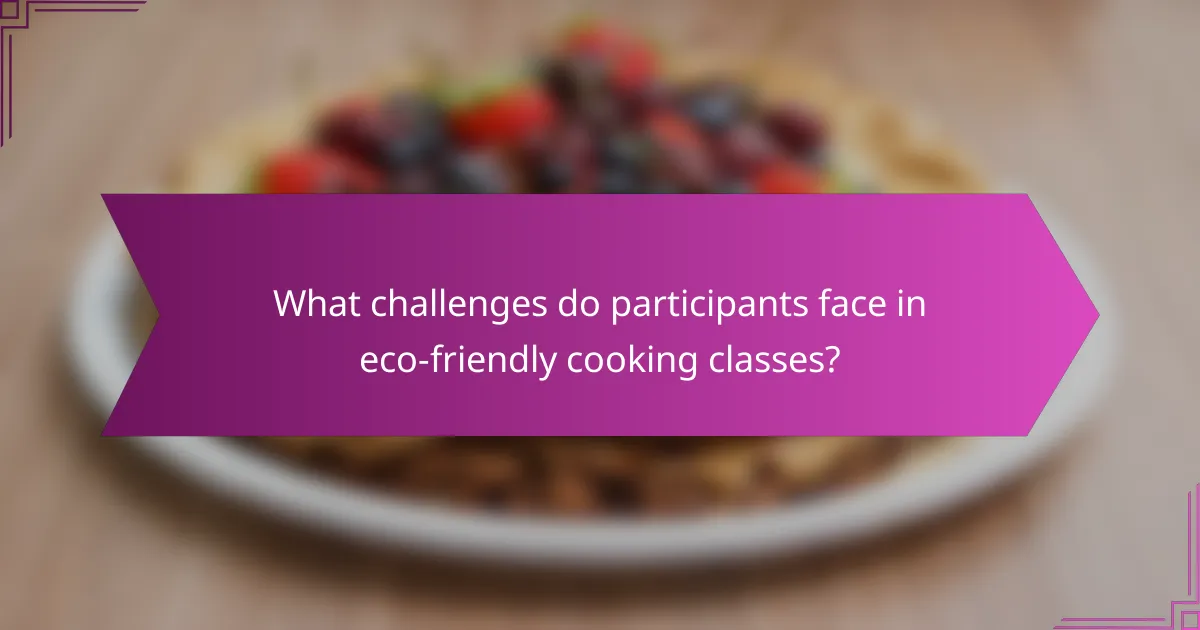
What challenges do participants face in eco-friendly cooking classes?
Participants in eco-friendly cooking classes face challenges such as limited access to sustainable ingredients, varying cooking skill levels, and adapting to new cooking techniques. Additionally, they may struggle with the cost of eco-friendly products and the time commitment required for classes. These factors can hinder their overall experience and learning outcomes.
How can these challenges be overcome?
Eco-friendly cooking classes in Barcelona can overcome challenges through community engagement, collaboration with local chefs, and sourcing sustainable ingredients. By fostering partnerships with local farms, classes can ensure fresh, organic produce. Additionally, offering flexible schedules and diverse class formats can attract more participants. Implementing online options can further expand reach.
What common misconceptions exist about eco-friendly cooking?
Many misconceptions about eco-friendly cooking stem from misunderstandings of its principles. One common belief is that it requires expensive, hard-to-find ingredients, whereas many sustainable options are locally sourced and affordable. Another myth is that eco-friendly cooking lacks flavour; however, local chefs often emphasise the rich tastes of seasonal ingredients. Additionally, some think eco-friendly cooking is time-consuming, but many classes in Barcelona teach quick, efficient techniques. Finally, there’s a notion that eco-friendly cooking is only for vegans, while it actually encompasses a wide range of dietary preferences, promoting responsible sourcing and reducing waste.
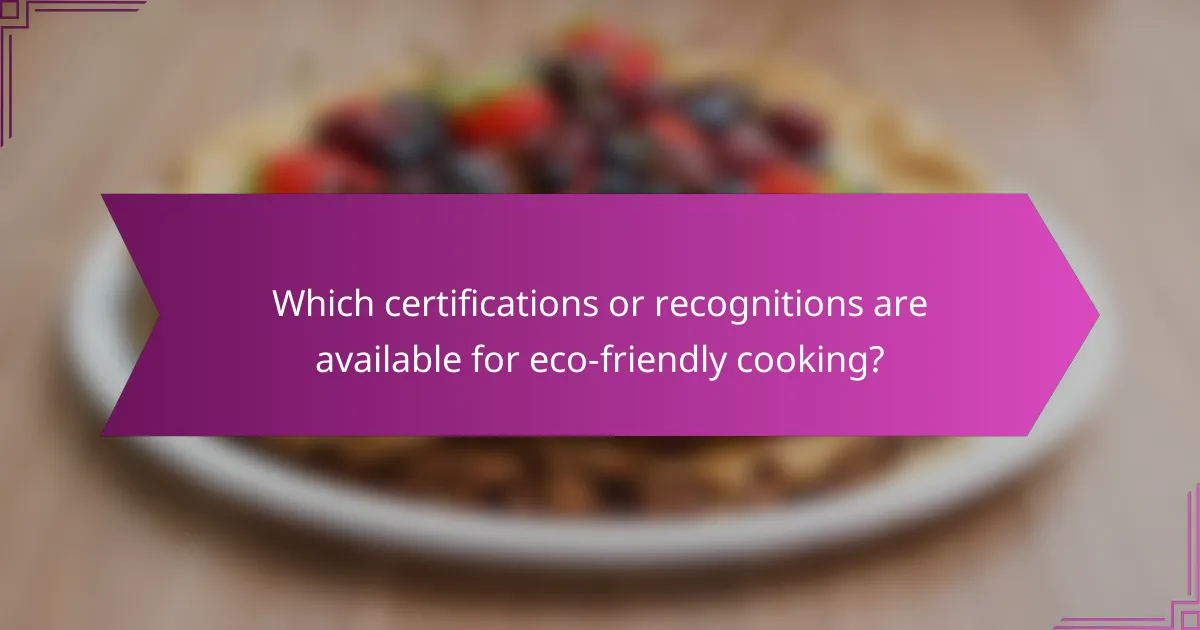
Which certifications or recognitions are available for eco-friendly cooking?
Several certifications and recognitions exist for eco-friendly cooking. Notable examples include the Green Chef Certification, which emphasises sustainable practices, and the Organic Certification, ensuring the use of organic ingredients. Additionally, local culinary schools in Barcelona may offer specialised certifications in sustainable cooking techniques. These credentials validate a chef’s commitment to environmental responsibility and sustainable culinary practices.
How do these certifications enhance credibility?
Certifications enhance credibility by validating the expertise of instructors and the quality of the curriculum in eco-friendly cooking classes. Certified local chefs demonstrate their commitment to sustainable practices, which builds trust among participants. Additionally, recognised certifications often indicate adherence to industry standards, ensuring that classes provide valuable skills and knowledge. This credibility attracts environmentally conscious individuals seeking authentic culinary experiences in Barcelona.
What are the benefits of participating in certified programs?
Participating in certified eco-friendly cooking classes in Barcelona offers numerous benefits. You gain practical culinary skills while learning from local chefs who emphasise sustainable ingredients.
These classes enhance your understanding of environmental impact, promote healthier eating habits, and foster community engagement. Certification can also improve your professional opportunities in the culinary field, as it demonstrates a commitment to sustainability.
Additionally, you may discover unique cooking techniques that highlight local produce, enhancing your culinary repertoire. Engaging in these classes supports local economies and encourages sustainable practices in the food industry.
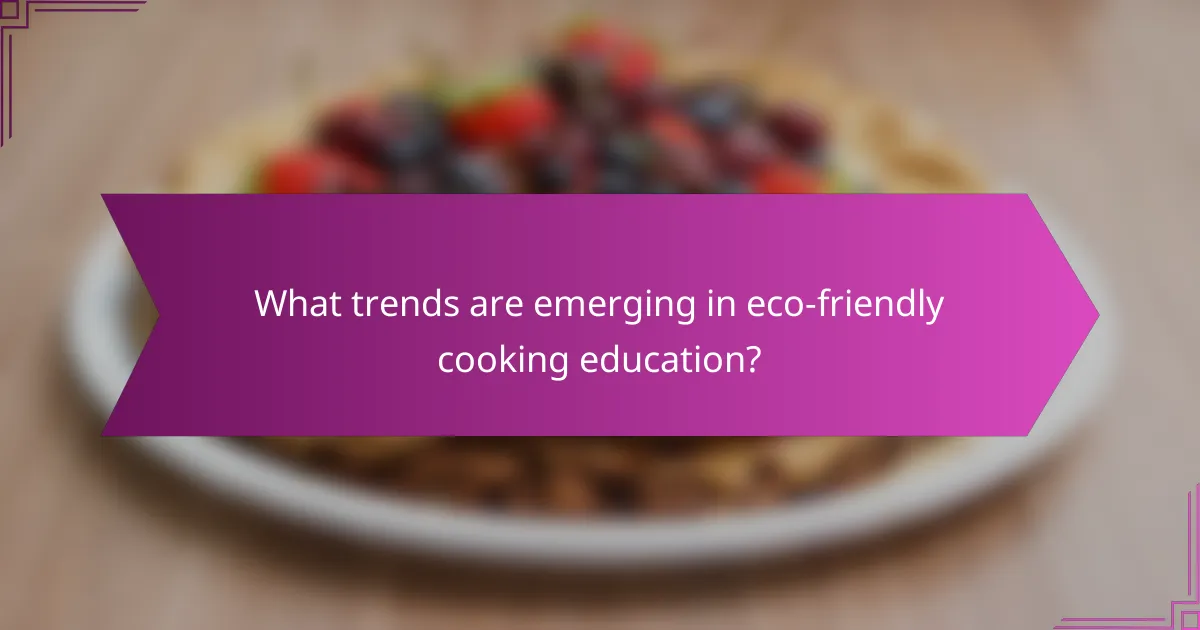
What trends are emerging in eco-friendly cooking education?
Emerging trends in eco-friendly cooking education focus on sustainability, local sourcing, and hands-on experiences. Classes in Barcelona emphasise skills like plant-based cooking, zero-waste techniques, and seasonal ingredient usage. Local chefs often lead these sessions, sharing insights on regional culinary traditions and sustainable practices. Increased demand for eco-conscious cooking reflects a growing awareness of environmental impact among consumers.
How is technology shaping the future of cooking classes?
Technology is revolutionising cooking classes by enhancing accessibility and promoting sustainable practices. Online platforms enable local chefs in Barcelona to reach wider audiences, offering eco-friendly cooking lessons that emphasise the use of sustainable ingredients. Virtual classes allow participants to learn at their own pace while minimising travel-related carbon footprints. Additionally, technology facilitates the integration of local sourcing apps, connecting chefs with nearby farms for fresh produce. This shift not only fosters community engagement but also educates individuals on the importance of sustainability in culinary practices.
Which global influences are impacting local eco-friendly cooking practices?
Global influences such as climate change awareness, cultural shifts towards sustainability, and local government initiatives are shaping eco-friendly cooking practices. In Barcelona, eco-friendly cooking classes emphasise skills in sustainable ingredient selection and preparation techniques. Local chefs often incorporate seasonal produce, reducing carbon footprints. Additionally, the rise of plant-based diets reflects a unique attribute of modern cooking trends, promoting healthier lifestyles.
What are best practices for maximizing your experience in eco-friendly cooking classes?
To maximise your experience in eco-friendly cooking classes, engage actively with local chefs and utilise sustainable ingredients. Prioritise classes that emphasise hands-on learning and provide insights into local culinary practices.
1. Research and select classes focused on sustainability.
2. Ask questions about ingredient sourcing and preparation techniques.
3. Participate in discussions about environmental impact.
4. Experiment with local flavours and seasonal produce.
5. Network with fellow participants to share experiences and ideas.
